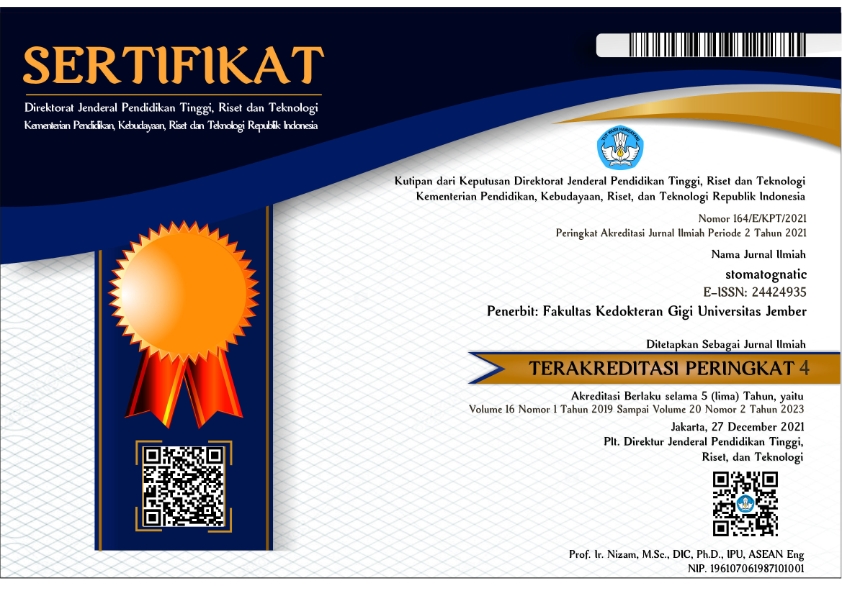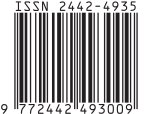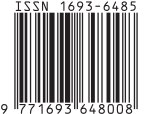EFEK PEMBERIAN ADRENALIN 1:80.000 DALAM LIDOKAIN 2% TERHADAP TANDA VITAL PADA ANESTESI NERVUS ALVEOLARIS INFERIOR
Abstract
Tooth extraction or other medical procedures in dentistry commonly used anesthetic agent such as lidocaine for pain relief. The lidocaine usually were added vasocontriction agent to reduce the dose, such as adrenalin. Its functions was as adrenergy or vasoconstritor. Releasing of excessive adrenaline from our body can result unexpected in vital sign. The purpose of this study was to determine the adding of adrenaline 1:80.000 in 2% lidocaine as inferior alveolar nerve block anesthesia that influenced in patient's vital signs. This study was done at oral surgery department of Dental Hospital Jember University. The samples of this study were students who follow the Dental Vocational Training Medical Dentistry. The samples criteria were willing to be the subject of research, good general health, not allergy to lidocaine and adrenaline, do not suffer from asthma. Data was analyzed by paired t-test (pre-post t-test). The result of this study showed there was no statistically significant difference in the examination except diastole. But all of them there was no clinically significant difference. Thus using of this material does not affect the changing of vital signs, so it was safety material for clinical application.







